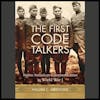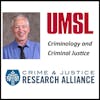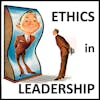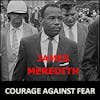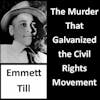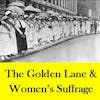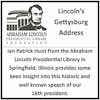Exploring Bias and Censorship in High School Debate with James Fishback
In this episode of "Saint Louis In Tune," hosts Arnold Stricker and Mark Langston interview James Fishback, the founder of Incubate Debate. They discuss the significance of debate in education, the problems with high school debate formats, and the inception of Incubate Debate to offer a nonpartisan platform for students. Fishback addresses the challenges of judges' biases and the need for diverse viewpoints in school libraries. The episode also touches on the importance of open communication, understanding idioms and acronyms, and the value of being receptive to new ideas and perspectives.
[00:00] Introduction to High School Debate
[00:10] The Importance of Idioms and Acronyms
[00:52] Exploring the Word 'Retinue'
[02:22] The Power of Listening and Understanding
[03:41] The State of High School Debate
[04:43] Interview with James Fishback
[04:46] The Goals and Challenges of Debate
[05:16] The Birth of Incubate Debate
[06:02] The Problem with Judge Paradigms
[08:16] The Growth and Impact of Incubate Debate
[16:59] The Importance of Diverse Viewpoints in Libraries
[22:54] Closing Remarks and Reflections
[38:04] Exploring Idioms and Their Origins
[40:17] Diving into Acronyms and Their Meanings
[47:41] Fun Facts and Jokes to Lighten the Mood
[51:50] Celebrating National Days and Their Significance
[55:04] Wrapping Up and Encouraging Continuous Learning
- Media Bias | AllSides
- Fentanyl Is Killing American Kids. Most Don’t Even Know They’re Taking It.
- The Truth About Banned Books
- Part II: At High School Debates, Watch What You Say
- At High School Debates, Debate Is No Longer Allowed
- James T. Fishback
- Incubate Debate
This is Season 7! For more episodes, go to stlintune.com
#debate #highschooldebate #incubatedebate #jamesfishback #thefreepress #bannedbooks #banningbooks #acronyms #idioms
Thank you for listening. Please take time to rate us on Apple podcasts,
Podchaser, or your favorite podcast platform.
Speaker:
Why would students subject themselves to high school debate
Speaker:
if the consequences are ridicule and bias in their debate?
Speaker:
We're going to find out more in this episode of Saint Louis and
Speaker:
Tune also idioms and acronyms.
Speaker:
Welcome to Saint Louis Intune. Thank you for joining us for fresh
Speaker:
perspectives on issues and events with experts, community leaders and
Speaker:
everyday people who are driving change and making an impact that
Speaker:
shapes our society and world. I'm Arnold Stricker with Mark
Speaker:
Langston. Mark, how are you today, sir?
Speaker:
Okay. Acronyms I can't wait. And what did you say? Idioms.
Speaker:
Idioms. I don't think I've ever. Is that the word for the day? Idioms?
Speaker:
No, actually, the word for the day will be retinue. Retinue?
Speaker:
Yes, retinue. How do you. Can you? Can I ask how you spell that retinue?
Speaker:
All right, I have. Matter of fact, we.
Speaker:
Can just talk about that right now. Okay?
Speaker:
A retinue is a group of helpers, supporters or followers.
Speaker:
So a venue relies on a retinue of workers to carry out large events.
Speaker:
Okay. All right. That's a totally a new word for me.
Speaker:
It means to retain or keep in one's pay or service.
Speaker:
So many of these notable people have read news that follow them around.
Speaker:
Taylor Swift has her retinue of workers. Okay.
Speaker:
Oh it's the workers okay. Not the helpers and supporters.
Speaker:
Right. And followers. I guess the fans would be retinue.
Speaker:
Who's then. Yes, you. Could say that. Okay. And you could also.
Speaker:
Say not a swifty. You're a retinue. Oh, I'm going to stay away from
Speaker:
that discussion. Okay. It reminds me of what we used to call
Speaker:
people at a rock concert in the front row. Crazy what that could be to.
Speaker:
They were people who were always wanting to get the attention of
Speaker:
the artist and. Oh, groupie. Groupie. Is that okay? Yeah.
Speaker:
Groupies would be like a retinue, a retina. Okay. Oh, wow. That's a good.
Speaker:
All right, I, I totally understand it, though.
Speaker:
So there's a lot of followers of this particular civility quote.
Speaker:
This has returned of civility. Okay. And we always try to assist our
Speaker:
society in being civil. Assume the person you're listening
Speaker:
to has something of value to say. And this really relates to our
Speaker:
conversation we're going to have today.
Speaker:
What if we assumed that everyone who spoke had a nugget of brilliance
Speaker:
in what they were about to say? You could even go so far as to look
Speaker:
for that nugget of brilliance. More often than not,
Speaker:
you'll find it. Yes. So assume the person you're listening
Speaker:
to has something of value to say yes. That's funny you say that.
Speaker:
When I was a younger lad, younger fella,
Speaker:
I had the attitude that I can learn something from everyone. Absolutely.
Speaker:
And I really it served me well to have that attitude and I did.
Speaker:
I would find even if the whole speech,
Speaker:
there was nothing in it or whatever, there was usually one nugget of
Speaker:
something that was enlightening to me that I could remember.
Speaker:
So it's important it it really is. And I challenge you folks out
Speaker:
there to try that. It really did. If you really try not to be so
Speaker:
critical, because we're such so critical nowadays,
Speaker:
but try to just I'm going to find I know there's something this person
Speaker:
is saying that is probably wise and thoughtful and helpful. Yeah.
Speaker:
And that especially relates to high school debate.
Speaker:
And our topic today I had the opportunity to talk to James
Speaker:
Fishback. And I'll let our interview go
Speaker:
into that and the conversation. But I read an article in the
Speaker:
Free Press in which he talked about high school debates and
Speaker:
the issues and problems that are going on with high school debates.
Speaker:
And James has a really interesting background, which we'll talk
Speaker:
about after our conversation. James Fishback is the founder and
Speaker:
executive director of Incubate Debate, America's fastest growing
Speaker:
high school debate league. He is a former national high
Speaker:
school debate champion and volunteer debate coach.
Speaker:
He launched incubate in 2019 as a no cost alternative to the ideological
Speaker:
echo chamber that traditional high school debate has become,
Speaker:
which he detailed in a widely acclaimed essay in the Free Press.
Speaker:
James is also the co-founder and chief investment officer of Azariah
Speaker:
Partners, a global macro investment firm, and prior to Azariah,
Speaker:
he served as the head of Macro at Greenlight Capital, a $2 billion
Speaker:
hedge fund led by David M Einhorn. James, welcome to Saint Louis Intune.
Speaker:
Thank you for having me. What, in your opinion,
Speaker:
are the goals of debate in schools and universities and frankly, in the
Speaker:
public arena that we have every day? The Arnold's pretty simple.
Speaker:
Expose students to the widest range of viewpoints, not for the purposes
Speaker:
of getting them to agree with the other side, but for getting them
Speaker:
to understand and appreciate where the other side is coming from.
Speaker:
Debate allows young people, whether in high school or college,
Speaker:
or even in a debate tournament, to allow that to happen. What is the.
Speaker:
Specific reason why you formed Incubate Debate in 2019,
Speaker:
and what kind of growth have you seen since the founding?
Speaker:
I started incubate because high school debate changed my life.
Speaker:
I was a young kid with a stutter. I didn't know much about what
Speaker:
was happening in the world back in high school.
Speaker:
And it's like, come to this high school debate activity, this club,
Speaker:
and I start reading Foreign Affairs and National Review and understanding
Speaker:
what's happening in other parts of the world and here at home.
Speaker:
And so I started incubate debate because more students need access
Speaker:
to debate and in particular, need access to a nonpartisan,
Speaker:
non ideological platform for debate, which the National Speech and
Speaker:
Debate Association has completely given up on.
Speaker:
Now speak about that a little bit more, because in your article in
Speaker:
the Free Press, you highlight that and you mention some things that
Speaker:
are going on with judges paradigms. And when debaters look at specific
Speaker:
paradigms or what judges are looking for in a debate, can you speak a
Speaker:
little bit more to that? Absolutely. A judge paradigm, all that is, is a
Speaker:
judge posing a statement online that students will read before the debate.
Speaker:
And that statement, when I was in high school,
Speaker:
would read something like, I would appreciate if you spoke a
Speaker:
little bit slower and I would like you to use impact in your arguments,
Speaker:
which is to say, tell us why your argument matters in today's debate.
Speaker:
That was the old idea of a paradigm in the new world.
Speaker:
What a paradigm represents is a political, ideological litmus test.
Speaker:
Judges who are judging these high school debate tournaments
Speaker:
will tell students. If you argue that Israel has a
Speaker:
right to defend itself, that capitalism can reduce poverty,
Speaker:
or that we need more police, not less. You will automatically lose.
Speaker:
And that's what paradigms serve to today.
Speaker:
They serve to stifle speech and to penalize and punish kids for
Speaker:
making arguments that are not in keeping with progressive orthodoxy.
Speaker:
Since that article in the Free Press. James.
Speaker:
Have you heard from SBA, which is the National Speech and
Speaker:
Debate Group Association, or have you seen a change in what the judges
Speaker:
enter in the databases? No change. If anything, they doubled down and I
Speaker:
put this article out in May of 2023 and their response was in 48 hours.
Speaker:
They put out a statement that said that the judges that we
Speaker:
bring on to our tournaments, they represent their own views.
Speaker:
And that's puzzling, because if Uber had Uber drivers
Speaker:
in New York saying that we don't pick up black passengers, under no
Speaker:
circumstances Uber wouldn't be saying they represent their own views.
Speaker:
These adults are brought to the National Speech and Debate
Speaker:
Association tournaments. They are told to come and adjudicate
Speaker:
these tournaments, and then they go out and punish and penalize
Speaker:
kids for making sound arguments that just don't keep up with that
Speaker:
line of progressive orthodoxy. Now you have formed the group
Speaker:
Incubate Debate, and it's actually a 501 C3.
Speaker:
And one of the things I really admire about it is that there are no costs
Speaker:
involved for students and schools who are to participate in this,
Speaker:
and it's mainly in Florida right now. Correct? That's correct.
Speaker:
We're in Florida. We're now serving students in
Speaker:
Georgia, in South Carolina, this article in the Free Press,
Speaker:
and the attention that we've got by exposing what the National Speech and
Speaker:
Debate Association has become, has allowed us to grow in such a big way.
Speaker:
So since that article came out a year ago, we have more than tripled the
Speaker:
number of students we've served now, over 5000 being three states, you
Speaker:
states on top of where we are today. In the coming six months,
Speaker:
we're getting emails every single day from coaches, from teachers,
Speaker:
from parents, from students saying we're done with the National
Speaker:
Speed Debate Association. We want debate like it used to be.
Speaker:
You come, you debate the prompt, you share evidence,
Speaker:
logic and reasoning and how well you do depends not on how well you
Speaker:
appeal to your judges politics, but how well you structure and
Speaker:
communicate your arguments. I really appreciate how you've
Speaker:
done this. You have these free debate
Speaker:
tournaments. You provide breakfast and lunch.
Speaker:
You provide child care for those parents who are there to watch
Speaker:
their high school kids debate. You offer scholarships and
Speaker:
stipends for coaches. And even yesterday, February 29th,
Speaker:
you did some professional development for some middle
Speaker:
school and high school teachers. Explain how you go about that
Speaker:
and what you are talking to those teachers about.
Speaker:
I have the pleasure of being in Hendry County, Florida,
Speaker:
not too far from where I grew up in Fort Lauderdale. He does incubate.
Speaker:
Debate is so much bigger than just hosting no cost to pay
Speaker:
tournaments for students, but we are trying to do is we're
Speaker:
trying to revive this spirit of open debate in all aspects of education.
Speaker:
To tell you the truth, if we did our job in the best case scenario,
Speaker:
we said we're going to put a high school debate club in every
Speaker:
high school in the country. We would probably get 2% of
Speaker:
students to show up to our incubate tournaments.
Speaker:
But if we instead, Arnold say that we are going to give teachers and
Speaker:
students the tools to be able to turn the classroom into a vibrant and
Speaker:
educational platform for debate, be it on the environmental
Speaker:
science class, be it on US history or government or civics,
Speaker:
we can now allow any student 100% of students to practice debate and
Speaker:
to be able to obtain the benefits that come from a free exchange
Speaker:
of ideas in the classroom. It's so important to have that free
Speaker:
exchange in high school, because as you go to the university setting,
Speaker:
it becomes quite a bit more boxed in. And that's been a lot of discussion
Speaker:
going on about what's going on on university campuses and free
Speaker:
speech around the country. You have three formats town hall,
Speaker:
roundtable and tribunal. Would you describe a little bit for
Speaker:
people so listeners get a little flavor of what a debate would be like
Speaker:
at an incubate debate? Absolutely. I'll start with my favorite and
Speaker:
students favorite, which roundtable roundtable is unlike any other
Speaker:
debate format that's out there. And yet it's most likely the debates
Speaker:
that happen every day in America, around the dinner table,
Speaker:
around the conference table. The way it works, Arnold,
Speaker:
is you have 7 to 8 students seated at a round table for 20 minutes.
Speaker:
They're given a question like, is there a climate emergency?
Speaker:
Or is President Trump guilty in the January 6th case?
Speaker:
And then they have 20 minutes to debate that without a moderator,
Speaker:
without really any rules, with the exception of no notes
Speaker:
or no standing up. And so they have this free flowing
Speaker:
debate where they can ask each other questions, they can put
Speaker:
forth arguments, they can refute those arguments in real time.
Speaker:
They can take polls and surveys of their fellow panelists.
Speaker:
And so it's debate like debate is supposed to be, which is natural,
Speaker:
organic, and authentic as opposed to highly rigid.
Speaker:
Now we have two other formats as well, which are great.
Speaker:
The other one is Town Hall. Town hall is similar to a student
Speaker:
maybe speaking up at a school board meeting. It's a 2 to 3 minute speech.
Speaker:
Similar prongs climate emergency, diversity, equity and inclusion,
Speaker:
so on and so forth. They go up there, they give a 2
Speaker:
to 3 minute speech uninterrupted, and then they take questions
Speaker:
from their fellow editors. The next student who will go up
Speaker:
there will present an alternate view and then take questions as well.
Speaker:
And the last one is called tribunal. The operative prefix there is try.
Speaker:
And that's a three on three debate. Now to really understand tribunal
Speaker:
you have to understand the role it plays at an incubator tournament.
Speaker:
And that is for the students who don't make it from the preliminaries
Speaker:
off to the semifinal round, those students still have an
Speaker:
opportunity to grab somebody they just met that day and say, hey,
Speaker:
do you want to partner up and revisit one of the topics we just did?
Speaker:
But now in this three on three format, and what that means is that
Speaker:
every single debate tournament, every student is engaged from
Speaker:
start to finish, even if you don't make it to the semifinal
Speaker:
or the final round this time, you still get a chance to hone those
Speaker:
debating skills and with tribunal to do it with people that you just met
Speaker:
that have a passion for debate and you get to build something really
Speaker:
special together, that's exciting. I remember judging a debate when
Speaker:
I was in college for a student that I knew in high school.
Speaker:
And which brings me to this question who are your judges in your debates,
Speaker:
and what kind of training or what kind of advice do you give them?
Speaker:
Let me first start out by saying that the judges that incubate debate
Speaker:
brings look like America, and I don't mean different shades of melanin.
Speaker:
I tell you the truth, we don't care about diversity in that sense.
Speaker:
We care about diversity of skill points.
Speaker:
And so our judges represent the best of the communities that we serve.
Speaker:
Students are judged by first responders, active service members,
Speaker:
citizens college and law school professors, community leaders,
Speaker:
faith based leaders, local elected officials, members of the judiciary.
Speaker:
They have a few points that run the political spectrum.
Speaker:
And more than that, they've all attests.
Speaker:
They've all attested in writing that they will be in social
Speaker:
adjudicators of these debates. And I'll tell you,
Speaker:
it shows in our results we don't just say that it shows because you
Speaker:
have students who will one weekend, a very conservative student with a
Speaker:
proud America First message will win. And then the following weekend,
Speaker:
a student who is advocating for a more progressive standpoint on
Speaker:
codifying Roe v Wade. I don't just judge our judges by
Speaker:
how much they look like the communities that we serve,
Speaker:
but let's actually judge them by the results that they produce,
Speaker:
which is that you have judges who consistently show that they are
Speaker:
going to present the winner as being the student who might not
Speaker:
be progressive or conservative. Or, you know, I encourage
Speaker:
listeners to go to incubate, debate org, incubate, debate,
Speaker:
org and find out more about this and even out of state,
Speaker:
if you're outside of Florida and Georgia and you're from Missouri and
Speaker:
you want to participate in this, there's a venue to be able to do that
Speaker:
online, correct? That is correct. And what we're working on right now,
Speaker:
we haven't shared this yet, but I want to tell it to you now
Speaker:
is we're working on a national chapter chair model.
Speaker:
And what that means is any American who is engaged, who cares about free
Speaker:
speech and open faith, who wants to give kids in their community
Speaker:
this platform, go to incubator, create that contact us button.
Speaker:
We'd love to hear from you. We'd love to partner with you because
Speaker:
this is a really straightforward format, and it's very easy to be
Speaker:
able to bring this to students. We've heard from people in all
Speaker:
50 states over the past year. They want this model, they want
Speaker:
free speech, they want open debate. And so those odds are they're
Speaker:
already there, neck of the woods who want to be a part of this.
Speaker:
And all it takes for you to be involved and to host it.
Speaker:
No, I have a question that that is a little.
Speaker:
Maybe it's not out of the ordinary, but someone with your background,
Speaker:
obviously, you're a debater, you're big in investment,
Speaker:
you're glib in a big in a hedge fund. Previously to being involved at
Speaker:
Azria Partners. How do you get involved with
Speaker:
writing like you do, like you wrote on the debate?
Speaker:
And folks, check this stuff out at Fishback substack.com.
Speaker:
You also wrote recently on fentanyl is killing American kids and most
Speaker:
don't even know they're taking it. That's in the free press.
Speaker:
And then another, we do have a little bit of time to talk about
Speaker:
the truth about banned books, yet we've got some issues going on
Speaker:
here locally and in the Saint Louis metropolitan area related to that.
Speaker:
And you mentioned something about one sided libraries. What do you mean by.
Speaker:
The one sided library is the library that a student who watches
Speaker:
the Republican debate in August of 2023 and says, wow, I'm not a
Speaker:
conservative, but I want to learn more about the candidates on stage.
Speaker:
That student then goes to the library.
Speaker:
So I want to check out the fake Ramaswamy spend more.
Speaker:
I want to check out Ron DeSantis memoir and then is told those
Speaker:
books are not available. That's the real story that a student
Speaker:
messaged me shortly after that debate saying, I went to my high school.
Speaker:
They had Kamala Harris's book, they had Barack Obama's book, they
Speaker:
had Joe Biden's book at AOC book. They had Bernie Sanders book.
Speaker:
But coincidentally, there were no conservative voice library.
Speaker:
And so what I did, Arnold, was I looked at the public databases
Speaker:
of the book that these public school libraries carry, and they found a
Speaker:
very clear and inconvenient truth, which is that public school
Speaker:
libraries have systematically excluded non progressive voices
Speaker:
from their collections. And so if you want to read about
Speaker:
Ibram X Kennedy, by all means you'll be able to do that.
Speaker:
But if a student wants to read from John McWhorter incredibly refutes
Speaker:
Kennedy's so-called anti-racist arguments, not a chance.
Speaker:
You can read the 1619 project, but you won't be able to find The
Speaker:
War on the West by Douglas Murray. You'll be able to read about how
Speaker:
Palestine is the victim of apartheid, but you won't be able to check
Speaker:
out Benjamin Netanyahu's bestselling book.
Speaker:
In my home state of Florida, Arnold students are not able to find
Speaker:
Governor Ron DeSantis best selling memoir, The Courage to Be Free,
Speaker:
which writes about how he credibly fought the pandemic failures by
Speaker:
using science and truth. And so the reality here is that
Speaker:
we are suffering from a lack of debate at these tournaments at
Speaker:
the NCA were also suffering from a lack of debate on all aspects
Speaker:
of education, including and especially the libraries.
Speaker:
Students at libraries should have access to the widest range
Speaker:
of viewpoints. I'm an unapologetic conservative,
Speaker:
but I defend these problematic critical race theory books being
Speaker:
in the library because I believe that students should be able to
Speaker:
read both sides and in America, read both sides,
Speaker:
and come to some semblance of truth independently think for themselves.
Speaker:
Yeah, I think you you really made a statement about that where you
Speaker:
were saying you leave all these books on the shelves, so long as
Speaker:
in books that might have a what I would call a progressive meaning
Speaker:
or focus, accompanied by books that offer an opposing viewpoint.
Speaker:
And you also mentioned that sometimes in your research, books that were
Speaker:
supposed to be quote unquote, banned were not really banned.
Speaker:
They were just shelved to another school. That's correct.
Speaker:
They were sold to a different collection.
Speaker:
They were put behind an opt in form that said that the parent
Speaker:
had to agree that the student were to check out the book.
Speaker:
Here's the reality of the situation. You've got 56% of public school
Speaker:
libraries carried Kamala Harris's memoir.
Speaker:
I didn't vote for her, but I respect the office that
Speaker:
she holds, and I think the book should be read by anybody.
Speaker:
But when only 6% of libraries carry Vice President Pence his memoir,
Speaker:
that's the problem we put out this year.
Speaker:
And we think, what are the librarians saying?
Speaker:
The librarians that I spoke to, I'm working on a follow up piece
Speaker:
now for the Free Press. The librarians that I spoke to,
Speaker:
they didn't deny this or they actually rationalized it.
Speaker:
They said that books like Mike Pence's book, he's a white
Speaker:
nationalist. He's a danger. They said that the Swami's point
Speaker:
of view is dangerous for students. They said that Abigail Schrader's
Speaker:
book, which credibly debunks the transgender hoax, that these books
Speaker:
were actually dangerous for kids. And so everything they've said
Speaker:
about what conservatives are doing, which I believe to be completely
Speaker:
common sense, books that had explicit sexual content,
Speaker:
graphic sexual content, cartoons, pardon my language,
Speaker:
of people masturbating. Those have no place in libraries
Speaker:
around kids, but yet those same people who are
Speaker:
defending those books will not say we need conservative voices.
Speaker:
We need voices that represent America.
Speaker:
75 million people voted for President Trump.
Speaker:
Good luck finding a book will defend him in a public school library.
Speaker:
How did you get to start writing? With your economic background.
Speaker:
I've always loved writing, I've always loved thinking,
Speaker:
and I've been blessed that burying her team has given me a platform
Speaker:
to do that. But these are issues. Probably the truth that I care
Speaker:
deeply about. The library, one who's a big
Speaker:
high school library person. I'm obsessed that I'm a conservative,
Speaker:
that I went on to read books by Glenn Greenwald and Noam Chomsky at
Speaker:
Cornell West noted progressives. It opened my eyes.
Speaker:
They expose me to different viewpoints.
Speaker:
They didn't really change my mind, but I was grateful for having read
Speaker:
them. And libraries matter to me. High school debate matters to my
Speaker:
mother. A recent piece in the Free Press
Speaker:
on fentanyl matters to me. I lost someone in my family to
Speaker:
addiction and to the poison on the streets, which pales in comparison
Speaker:
to what kids are now being peddled over Snapchat. And so I write.
Speaker:
To tell you the truth, when I feel that the Lord has
Speaker:
given me a purpose to be able to share my thoughts and opinions.
Speaker:
James, it's been an honor to have you on here and talk about this.
Speaker:
I hope this really invigorates some people who are listening to
Speaker:
check this out. You can go to
Speaker:
fishback.substack.com to get more information on on his writing.
Speaker:
You can also follow him on Twitter or X at J underscore Fishback.
Speaker:
Also, you need to make sure that you check out incubate debate
Speaker:
org incubate debate. Org James Fishback,
Speaker:
Founder and Executive Director of Incubate Debate.
Speaker:
Thank you for coming on Saint Louis and tune and talking about
Speaker:
this today. It is my pleasure, a special place
Speaker:
in my heart for Saint Louis. Thank you very much. Thank you.
Speaker:
Wow. It is very interesting, Mark. I think so too is.
Speaker:
His writing and just speaking to these things and for for many of you
Speaker:
who don't know about the Free Press, the Free Press is a new media
Speaker:
company founded by Barry Weiss. He was talking about Barry,
Speaker:
and she used to be a journalist for The New York Times.
Speaker:
And it's built on the ideals that once were the bedrock of
Speaker:
great journalism honesty, doggedness and fierce independence.
Speaker:
They publish investigative stories, provocative commentary, and it was
Speaker:
originally called Common Sense. They focus on stories that are
Speaker:
ignored or misconstrued in the service.
Speaker:
I get this of an ideological narrative.
Speaker:
For us, curiosity isn't a liability. It's a necessity.
Speaker:
So they expect debates. They have scoops from trusted
Speaker:
reporters, and people won't agree with everything.
Speaker:
And on all sides, media bias rating, they are rated center.
Speaker:
It doesn't mean they're absolutely all the views are center.
Speaker:
Some views are left, some views are right.
Speaker:
But it's it's a place that you can go and listen to commentary and debate
Speaker:
about issues and not hear extremes. You'll you'll hear facts.
Speaker:
You'll hear a good reporting. That's what I love.
Speaker:
And that's what James was doing with this high school debate thing.
Speaker:
Wow. I different viewpoints. I've always been a big supporter
Speaker:
of that. Absolutely. And why they ban books from
Speaker:
schools or libraries? It's never a good idea. No.
Speaker:
That's your imposing your viewpoint on me.
Speaker:
And I don't particularly care for that.
Speaker:
I want to know why you're imposing your viewpoint on me.
Speaker:
On his investigation of banned books was also interesting that if we're
Speaker:
going to have this book, yeah, let's get both sides, let people
Speaker:
read and think for themselves. Isn't that a great what a concept.
Speaker:
People don't want to have. I think it's, I don't know,
Speaker:
a laziness maybe doctrines. Yeah. It is a laziness.
Speaker:
It's and it's too bad I don't know communicate your argument I
Speaker:
think is something he threw out there and he's right. Yeah.
Speaker:
How can you communicate your argument if you don't have the.
Speaker:
If you don't know the facts? Yeah. The information.
Speaker:
We'll talk more about this after the break.
Speaker:
We'll be right back for our next segment.
Speaker:
You were listening to Saint Louis in tune with Arnold Stricker and Mark
Speaker:
Langston on the US radio network.
Speaker:
This is Arnold Stricker of Saint Louis Intune on behalf of the Dred
Speaker:
Scott Heritage Foundation in 1857, the Dred Scott decision was a
Speaker:
major legal event and catalyst that contributed to the Civil War.
Speaker:
The decision declared that Dred Scott could not be free because
Speaker:
he was not a citizen. The 14th Amendment,
Speaker:
also called the Dred Scott Amendment, granted citizenship to all born
Speaker:
or naturalized here in our country and was intended to
Speaker:
overturn the U.S. Supreme Court decision on July 9th, 1868.
Speaker:
The Dred Scott Heritage Foundation is requesting a commemorative stamp
Speaker:
to be issued from the US Postal Service to recognize and remember
Speaker:
the heritage of this amendment by issuing a stamp with the
Speaker:
likeness of the man, Dred Scott. But we need your support and the
Speaker:
support of thousands of people who would like to see this happen.
Speaker:
To achieve this goal, we ask you to download, sign and share the
Speaker:
one page petition with others. To find the petition,
Speaker:
please go to Dred Scott Lives. Org and click on the Dred Scott
Speaker:
petition. Drive on the right side of the
Speaker:
page on behalf of the Dred Scott Heritage Foundation.
Speaker:
This has been Arnold Stricker of Saint Louis in June.
Speaker:
Each time that we plan a show for Saint Louis Intune,
Speaker:
we strive to bring you informative, useful and reflective stories,
Speaker:
as well as interviews about current and historic issues and events that
Speaker:
involve people, places and things. And while Saint Louis in Tune
Speaker:
originates from the Gateway City and covers local topics, we also connect
Speaker:
what's going on nationally as well. Our topics cover a wide range of
Speaker:
arts, crime, education, employment, faith, finance, food, health,
Speaker:
history, housing, humor, justice, sports and that's just to name a few.
Speaker:
We know there's many radio stations, programs, even podcasts that you
Speaker:
could be listening to, and we're glad that you've chosen
Speaker:
to listen to Saint Louis in tune. If you've missed any of our
Speaker:
previously aired programs of Saint Louis and Tune, simply visit STL
Speaker:
entune.com. That's STL entune.com. There you'll find every show from
Speaker:
our first to our most current. Use the search engine to look
Speaker:
for a show that might interest you from one of the many topics
Speaker:
that we've covered. And drop us a line and tell us
Speaker:
how we're doing. You can do that at STL Entune at
Speaker:
gmail.com. That's STL Entune at gmail.com.
Speaker:
Saint Louis Entune heard Monday through Friday on the US radio
Speaker:
network.com and many great radio stations around the U.S. and of
Speaker:
course right here in Saint Louis. And don't forget check out our
Speaker:
website STL in tune.com. That's STL in tune.com.
Speaker:
Welcome back to Saint Louis in June. This is Arnold Stricker with
Speaker:
Mark Langston. We had a conversation with James
Speaker:
T Fishback. He's the founder and executive
Speaker:
director of Incubate Debate, and they are located in Florida.
Speaker:
But they are expanding nationally, and they're getting into that
Speaker:
expansion as we speak. One of the things I wanted to
Speaker:
mention, Mark, about some of the things that he said in his part
Speaker:
two of the high school debate, I should call it snafu or bias
Speaker:
campaign is that many times. Here's one judge's paradigm.
Speaker:
We talked about paradigms. I will consider indictments of an
Speaker:
opponent, indictments of an opponent, not of an issue of an opponent on
Speaker:
the basis that they have done or said something racist, gendered,
Speaker:
or phobic in their personal behavior. The indictment, however,
Speaker:
needs to be clearly documented. A screenshotted Facebook post
Speaker:
and accusation with references to multiple witnesses who can
Speaker:
corroborate the incident and the offending violation action it
Speaker:
needs to fall into the category of commonly understood violations
Speaker:
of norms of basic decency surrounding race and gender.
Speaker:
He continues by stating, microaggressions will be
Speaker:
considered even if they are more difficult to prove or document.
Speaker:
So one particular student who was debating had misinterpreted something
Speaker:
on Twitter X and made a comment back. He was referring more to the freedom
Speaker:
to be able to speak about things, even though they might be vile,
Speaker:
and somebody took a screenshot of that and attacked him
Speaker:
personally in the debate. Even though this particular student
Speaker:
who made these statements based upon I think this is what they're saying.
Speaker:
But he misinterpreted it. He was winning the debate.
Speaker:
But the debate judge said, no, you lose because of these
Speaker:
aggressions that you were doing and you're a biased kind of person,
Speaker:
and we don't want to have anything to do with you. Amazing, amazing.
Speaker:
It's very controversial. It's very controversial.
Speaker:
And why would a student want to participate?
Speaker:
As I said at the beginning, why would a student want to participate in
Speaker:
high school debate if this was the kind of response that they were
Speaker:
going to get from judges? Oh, yeah. It's yeah, it seems very one sided,
Speaker:
doesn't it? It is. It is one sided.
Speaker:
Am not sure where the student learns anything from that, but it's almost
Speaker:
taking it out of context, isn't it? Yeah, I think they they learn I
Speaker:
have to go along to get along and going along to get along.
Speaker:
If you look back through history, didn't get people very far.
Speaker:
It got a lot of problems. Were you ever in the debate class?
Speaker:
I was never in that. I, I really almost think and as
Speaker:
a former educator and it's a continuing educator, right.
Speaker:
That is something that should be a requirement.
Speaker:
Speech and debate should be a requirement for students. Yeah.
Speaker:
I think it's a wonderful skill to have. Yes, I agree with that.
Speaker:
Something good to be exposed to, it's real world kind of things.
Speaker:
Some people can't speak their mind and they just don't know how
Speaker:
to put it together and do it. And I think that communication
Speaker:
and he talked about communicating your argument,
Speaker:
just communicating whatever's, you know, whatever you think is
Speaker:
important, I think is it has got a, a lot of, credit.
Speaker:
students that aren't in debate
Speaker:
classes are able to really communicate and talk to people,
Speaker:
stand up in front of a crowd. Right. They use social media. They use.
Speaker:
Oh, yeah. This way too much. Right. But I would also say adults are
Speaker:
guilty of this as much. And you used a great word
Speaker:
communicate with each other. I want to read you a quote from
Speaker:
Martin Luther King. And he made this on October the 15th,
Speaker:
1962 at Cornell College in Mount Vernon, Iowa.
Speaker:
He said, I am convinced that men hate each
Speaker:
other because they fear each other. They fear each other because they
Speaker:
don't know each other, and they don't know each other because they
Speaker:
don't communicate with each other, and they don't communicate with
Speaker:
each other because they are separated from each other.
Speaker:
Now you look at our country of where we are today,
Speaker:
in what I would call a cultural war, that the extreme sides are fighting
Speaker:
with each other and the people in the middle are like, listen,
Speaker:
let's talk to each other and we don't. We're totally separated.
Speaker:
People will listen to certain television and radio programs because
Speaker:
that's what they want to hear. They don't want to listen to the
Speaker:
other side because they're all liars. And the other side believes the
Speaker:
same thing. Right. And I think it's good to listen
Speaker:
to all points of view. I think it's good to listen to if
Speaker:
you're on the right, listen to what the left's talking about.
Speaker:
If you're on the left, listen to what the right's talking about.
Speaker:
I agree totally with you. I we should we need more of that.
Speaker:
Yes. And it's too bad because it divided.
Speaker:
United we stand, divided we fall. Absolutely.
Speaker:
It's exactly what's happening. We're being becoming divided by
Speaker:
our ideologies. They did this to our to to us.
Speaker:
We're going to do that to them, right?
Speaker:
It's an eye for an eye and a tooth for a tooth. I tit for tat.
Speaker:
I don't you know, our government is a good demonstration of the inability
Speaker:
to communicate with each other. I wish we could get away from
Speaker:
the two party system. I don't see that ever happening.
Speaker:
It's just too bad there's a Ross Perot was the last one that if
Speaker:
anybody can remember, Ross Perot. Am I dating myself?
Speaker:
Oh, I remember him. But he made a good stab at it.
Speaker:
I thought he did very well, but he really barely scratched
Speaker:
the surface. Right. Of breaking into the two party
Speaker:
system. I think, like you say, Arnold,
Speaker:
to have all these different views coming together, making being able
Speaker:
to look at both sides or all three sides or how many sides there are,
Speaker:
and then come up with your own, your own opinion on it,
Speaker:
I think is important. And even individuals having an
Speaker:
opinion, having their speech, and respecting that,
Speaker:
that they want to believe that. Okay. And you can present some
Speaker:
alternative facts to them, some alternative information to them.
Speaker:
But if that's what they want to believe,
Speaker:
that's what they want to believe. What we are getting into now and
Speaker:
what James is talking about is, no, you can't even talk about that,
Speaker:
because I'm going to put you down for that. Right?
Speaker:
And then what you do is you stifle speech and that's not good.
Speaker:
I always go back to my mayor stuff. I'm sorry. Go ahead.
Speaker:
But I had a little something that, you know, something that you have
Speaker:
a lot of these little sayings and things that kind of guide you.
Speaker:
And one of mine, one of my many, was a good politician will change
Speaker:
his mind, his or her mind. And I found I changed my mind
Speaker:
many times as I got more information about it.
Speaker:
And I wish people need to be able to be open to even changing their mind.
Speaker:
This is the way I want it to be. This is how I see it.
Speaker:
It's my way or no way. But you have to be open to listen
Speaker:
to the other side and then maybe evaluate it and say, you know what,
Speaker:
maybe I didn't have all the facts. I don't want to say maybe I was
Speaker:
wrong, but maybe I just was not informed enough. I think you.
Speaker:
Hit on a key. Thing is,
Speaker:
I had the saying my decisions are only as good as the information that
Speaker:
I have when I make the decision. And many times you hear
Speaker:
politicians and we hear this now because this is an. Election year.
Speaker:
They say, I'm going to do this, or I'm going to do this,
Speaker:
or everybody's going to do this on the first day. They can't.
Speaker:
That's not their role. They can't do that.
Speaker:
Or they say they're going to do that. And then when they get in office,
Speaker:
they find out, like you said, all this background information
Speaker:
that they weren't privy to. Yes. And now they were like, oh, if we do,
Speaker:
that's going to be a problem, right? Yeah.
Speaker:
And I admit, I walked into the mayor's office having this is
Speaker:
how we're going to do it. This is what I want to do.
Speaker:
And you're exactly right. You find out information that
Speaker:
not the general public knows, maybe, and you go, wow,
Speaker:
there is a good reason for the way things are and the way this is right.
Speaker:
And how can I make that better and move with it?
Speaker:
But yeah, people need to be able to change their mind.
Speaker:
I don't, especially politicians, because they affect our society so
Speaker:
much. Yes, and our day to day lives. And it's scary almost to me how much
Speaker:
they can affect what's going on. I think one of the saddest things
Speaker:
in looking at the election and many times, as you were describing
Speaker:
about at your time at mayor, that maybe the situation was the
Speaker:
best that they could do with everything that was going on. Right.
Speaker:
And what's unfortunate in our political system is many people
Speaker:
think, have to choose the lesser of two evils here, right?
Speaker:
And that's not a good place to be. No, I would highly recommend a good
Speaker:
place to be, but many people go there. A lot of people go there.
Speaker:
Yeah, they feel like they have to make a decision. Right?
Speaker:
Sometimes you don't have to make a decision. That's correct.
Speaker:
But people feel like, oh no, I've got to based on what I've got.
Speaker:
And it's no, you really don't have it.
Speaker:
I had another saying when I worked, no person is better than the wrong
Speaker:
person, because the wrong person will make you do your job and
Speaker:
their job and then have to clean up after them and everything else.
Speaker:
That's so. It's better. Hey, we don't have to deal with
Speaker:
that person. Yeah, they're not even around.
Speaker:
Oh my goodness. Yeah. That's true. So folks check that out.
Speaker:
You can go to the free press. That's tag.com.
Speaker:
Or you can check the information as it relates to incubate debate
Speaker:
incubate debate. Org. And you can look up James T Fischbach
Speaker:
and find him on Substack. Wow. That was a great interview actually.
Speaker:
It was. Very interesting. Yeah,
Speaker:
I have a lot of respect for him. He's he's a good thinker. Oh yeah.
Speaker:
We need and thinkers make me think and question what I'm thinking,
Speaker:
what I'm believing. It's about time. So how about some idioms and
Speaker:
acronyms? Ooh, yeah. There's a couple on this list I
Speaker:
was going over, which. Wow. I may have said this idiom at
Speaker:
one time. Mark, I'm going to go to the idioms
Speaker:
first before the acronyms go the whole nine yards, which is try your
Speaker:
best at something you might not have that I don't think I have.
Speaker:
You didn't download that one. I didn't get that.
Speaker:
fighter pilots were equipped
Speaker:
with nine yards of ammunition. When they ran out, it meant that they
Speaker:
had tried their best at fighting off the target with the entirety
Speaker:
of their ammunition. So they went. The whole nine yards are nine
Speaker:
yards of ammunition. Go the whole nine yards.
Speaker:
Okay, I'll do another one. Then we can go to the acronyms here.
Speaker:
How about. A couple. More. Let's see here.
Speaker:
These are really good. I must have a. Cup of Joe the Navy's drink of
Speaker:
choice. Cup of Joe. When Josephus Daniels was appointed
Speaker:
Secretary of the Navy in 1913, he abolished the idea of alcohol
Speaker:
being served aboard ships. From that time on, coffee was the
Speaker:
strongest drink available to sailors, and over time the drink became known
Speaker:
as a cup of Joe. I'll be darned. Never knew that Murphy's Law!
Speaker:
No. Tell me, who's Murphy from? A pessimistic captain.
Speaker:
If there is more than one way to do a job, and one of those ways
Speaker:
will result in disaster, then somebody will do it that way,
Speaker:
said Captain Edward A Murphy to his assistant after testing a
Speaker:
rocket sled at Edwards Air Force Base in 1948, the exchange led
Speaker:
to the use of Murphy's Law. If anything can go wrong,
Speaker:
it will. Well, wow. I never I knew that saying and
Speaker:
everything, but I never knew where it came from. Yeah, military.
Speaker:
And lastly, a deadline? Okay. It was a Civil war threat.
Speaker:
Now a synonym for a due date or a time limit.
Speaker:
The word deadline was originally used much more literally during
Speaker:
the Civil War. Prisoners at one camp were
Speaker:
confined to a pen and surrounded by a deadline, so-called because
Speaker:
if a prisoner crossed it, he would be shot dead. Whoa! Wow.
Speaker:
I'm glad the bosses if we miss a deadline.
Speaker:
Wow, it doesn't go that far. Holy smokes. That is. That's.
Speaker:
Yes. Okay. Yeah, yeah. So which acronym got you going?
Speaker:
One of them, which I was a I was amazed a little bit that it was
Speaker:
even on here WD 40. Yes. Water displacement 40th formula. Yes.
Speaker:
That one kind of got I would have never even thought that it would have
Speaker:
been an acronym, but I guess it is. I had no idea that's what it meant.
Speaker:
And probably there's guys out there going, oh yeah, I knew that. Yeah.
Speaker:
Well what's what's wrong with you I like am and PM.
Speaker:
Your a your. Morning and afternoon your Am
Speaker:
and PM your. Am and the PM. Anti meridian post meridian.
Speaker:
That was a pretty interesting one. There was one here.
Speaker:
I just yeah so's that. I always knew it was like a help.
Speaker:
Save our ship. Yeah. Save our ship. I didn't know that's what it was.
Speaker:
Yeah I didn't know tazer was a Tom a Swift electric rifle.
Speaker:
It sounds like it's some toy. Now even I was, I think I knew that
Speaker:
it was vehicle identification number. You have the Vin,
Speaker:
the Vin on your car, whatever. I guess this could be other things.
Speaker:
How about we see these a SIM card? You don't put a SIM.
Speaker:
The subscriber identity module. Ooh, sounds like something NASA
Speaker:
would do. NASA another acronym. Oh, yeah. What?
Speaker:
National Aeronautics and Space Administration.
Speaker:
Of course there's the old ASAP as soon as possible.
Speaker:
We all know that one. I hope the DVD I never knew this one.
Speaker:
Digital versatile disc. Versatile. It's a versatile.
Speaker:
Versatile disc or versatile? Versatile whichever one you want.
Speaker:
There. Yeah, try to get the audience
Speaker:
involved here. There we go I don't know.
Speaker:
Come on folks. Okay okay. We need more than just that girl.
Speaker:
Okay. There they are. I knew they were here.
Speaker:
So did you know the group ABBA? I call them ABBA, ABBA, ABBA.
Speaker:
Is it ABBA or is it an ABBA? Okay, it's an acronym. It is.
Speaker:
Did you know that? No, it's the name of their first
Speaker:
initial of each members names. Oh, no.
Speaker:
I'm probably going to get their names wrong.
Speaker:
Agnetha, Bjorn, Benny and Anna Freed. Oh, I think that's good for you.
Speaker:
For even attempting that. Yeah, that should be radar.
Speaker:
I didn't I thought radar was just something I didn't know.
Speaker:
It was an acronym for something. Radio detecting and ranging.
Speaker:
Yeah, that's radar. Radio detecting and ranging who
Speaker:
who to know. And there's sonar sound navigation
Speaker:
and ranging. Oh, okay. Here's one. Yahoo! Oh, I thought it was like.
Speaker:
Hey, Yahoo! Yeah it's arts. Yeah. Yet another hierarchical
Speaker:
organized oracle. Wow. That's I wonder it's called Yahoo.
Speaker:
That's a tough one right there. Let's see.
Speaker:
Sonar did you got that one. Yeah yeah.
Speaker:
Sound navigation and ranging. Never knew that.
Speaker:
Who knew I didn't know canola oil was an acronym.
Speaker:
I thought it was canola oil really. In 1978 the words Canada and Ola
Speaker:
which means oil were combined to create the term canola.
Speaker:
And the crop known as Canadian oil, is the only crop produced for
Speaker:
the first time in Canada and was developed by scientists through
Speaker:
cross-breeding of the rapeseed plant. They wanted to call it rapeseed oil,
Speaker:
but they knew that was not going to work. No, I don't.
Speaker:
So canola oil canola is actually Canada oil. Never knew that.
Speaker:
Yeah. That's crazy. Did you did you say Ram?
Speaker:
I did not. Random access memory. So you've got Ram on your computer?
Speaker:
Hopefully you've got a lot of Ram nowadays.
Speaker:
How about people who go to CVS? Yeah. Consumer value store. Oh, never.
Speaker:
Right. Did not know that one, of course FEMA everybody's
Speaker:
heard of FEMA. Should just give them a
Speaker:
honorable mention. The Federal Emergency Management
Speaker:
Association. That's a pretty easy one right there.
Speaker:
But I didn't know. I thought Geico-, the insurance
Speaker:
company, I thought government employees insurance company, I.
Speaker:
I thought that all I know, what is that all about?
Speaker:
And you can and you can get Geico. Even if you're not a government
Speaker:
employee. You don't even have to listen to
Speaker:
the- the gecko and zip. You know what zip is like the
Speaker:
zip code zone improvement plan. I know, don't get me started.
Speaker:
I don't remember when we posted letters.
Speaker:
We would put like Saint Louis 30, Missouri, which that 30 is 63130 or
Speaker:
University City or you put six or you Saint Louis 14 Missouri that
Speaker:
was overland or Saint Louis 32 wow. That's all of that.
Speaker:
Oh yeah. It was something. Now we have four more digits after
Speaker:
the plus four. Yeah. The plus four. Nothing like plus four.
Speaker:
Got enough numbers to remember. Yeah. Jpeg. We all use JPEGs.
Speaker:
Do you know what it means, though? I didn't until I just saw this.
Speaker:
Joint photographic experts group. Joint photographic experts group.
Speaker:
What in the world? Who can. Okay, that's really not.
Speaker:
I've heard of Bogo. Buy one, get one. Oh, yeah. But bopis.
Speaker:
Buy online, pick up and store. That's exactly right.
Speaker:
It's a bopis. What is a. Never heard of a Bopis before?
Speaker:
Some of these are actually used in online in a on a texting.
Speaker:
Oh like some texting things. When kids use that stuff I have to
Speaker:
look it up. Yeah. What is that one? AWOL of course,
Speaker:
but I already knew what it was. But I don't know exactly what it
Speaker:
stood for. It was a it's absent without leave.
Speaker:
I guess if you're in the military, you probably understand that they
Speaker:
love all. Those acronyms, right? In a jiff, a gif. Uhhuh.
Speaker:
Some people pronounce it GIF. It's a GIF graphics interchange
Speaker:
format. Ooh, the FOIA FOIA. I've never.
Speaker:
Is that how you pronounce it for you? I've always just gone by the Freedom
Speaker:
of Information Act. It's easier. I know I've never done easier
Speaker:
than FOIA. It really is. I don't know, I don't get that at
Speaker:
all. Okay. There's a lot of these. There's a lot of them. I had no idea.
Speaker:
I want to keep our folks laughing. Snafu kind of do. Snafu. Absolutely.
Speaker:
What is that? One situation? Normal. All fouled up.
Speaker:
I know it kind of contradicts itself. It's the. Government.
Speaker:
Yes, that could be a that's one of. I put the G by that one.
Speaker:
Or maybe their situation is abnormal. Oh they're.
Speaker:
Yeah that's probably right. Definitely. So it's a snafu.
Speaker:
Your man ran home from work, pulled his wife into the bedroom,
Speaker:
threw her on the bed, pulled the blankets over them. She was shocked.
Speaker:
He hadn't been like this for 20 years.
Speaker:
And then he her husband said, look, my new watch glows in the dark,
Speaker:
This kind of relates to what we
Speaker:
were talking. There's more. Okay. Yeah. EEG. Means example given.
Speaker:
Or for example, i.e. you might use that means in essence.
Speaker:
Oh, in essence. Oh, yeah. Oh I'm sorry. Okay.
Speaker:
It shouldn't be laughing at that. That's probably in essence is
Speaker:
what it is. If you're naked on the front porch
Speaker:
and the neighbors can't see you, it's rural.
Speaker:
If you're naked on the front porch and the neighbors call the cops,
Speaker:
it's suburban. If you're naked on the front porch
Speaker:
and the neighbors ignore you, it's urban.
Speaker:
And if you're naked on the front porch and your neighbor's also naked,
Speaker:
it's Florida. Oh, no, no no no no. I just I bet jellyfish are sad that
Speaker:
there are no peanut butter fish. Whoa whoa whoa. Whoa whoa whoa.
Speaker:
That's a good point, though. Don't forget that there are three
Speaker:
days that men are always right, February 29th, 30th,
Speaker:
and 31st. Ask your wife. This gave me. Wow. Do you.
Speaker:
Do you remember before the internet that people thought the.
Speaker:
The cause of stupidity was the lack of access to information?
Speaker:
And every time a bird flies over and
Speaker:
leaves their little mess on my car, I need to play the wings on the
Speaker:
front porch to show them what I'm capable of. Wow. Stay away.
Speaker:
I was going to cook an alligator for dinner, but realized I only had a
Speaker:
crock pot. Oh, these are really bad. They're almost dad jokes,
Speaker:
I'll tell you. Someone just honked to get me
Speaker:
out of my parking spot faster. So now I have to sit here until
Speaker:
both of us are dead.
Speaker:
Yeah, like that actually. We see these commercials about the
Speaker:
lawyers. They're all over the place. Billboards?
Speaker:
Matter of fact, you watch television. Oh, it's lawyer commercials and
Speaker:
drug commercials. Lawyer commercials and drug
Speaker:
commercials. Yeah, well, somebody mocked all this,
Speaker:
and they said, did your human break a treat in half and try to
Speaker:
pass it off as a whole? Treat. You may be entitled to compensation
Speaker:
from hound Wolf and Chase. Our attorneys have seven times
Speaker:
the experience chasing down treat Awards paws today to schedule a
Speaker:
consultation. Oh, I love it. That's pretty sweet, actually.
Speaker:
What was the name of them? Hound. Hound, Wolf and Chase Lovett.
Speaker:
Attorneys of poor. So three drunk guys entered a taxi.
Speaker:
The taxi driver knew that they were drunk, so he started the
Speaker:
engine and turned it off again. Then said,
Speaker:
we have reached your destination. The first guy gave him money.
Speaker:
The second guy said, thank you. And the third guy slapped the driver.
Speaker:
The driver was shocked, thinking the third drunk knew what he did,
Speaker:
but then he asked, what was that for? The third guy replied,
Speaker:
control your speed next time. You nearly killed us.
Speaker:
Ho ho ho ho ho! Oh, man. Okay, somebody said,
Speaker:
I'm not sure about an inner child, but I have an inner idiot that
Speaker:
surfaces every now and then. Oh. I. Oh, my. All right.
Speaker:
Those are all good. Well. Let's see. If you had to choose between
Speaker:
eating bacon every day or being skinny for the rest of your life.
Speaker:
Would you choose applewood or hickory smoked? Ooh ooh ooh.
Speaker:
Tough tough room. And I found that I have been
Speaker:
happier since I changed from coffee in the morning to orange juice.
Speaker:
My doctor explained that it's a natural sugars, the vitamin C,
Speaker:
but I really think it's the vodka. Well. Oh, wait. It is. It's.
Speaker:
Nationals. Cinco de marzo. Do you know what a Cinco de Mayo is?
Speaker:
It's your favorite alcoholic beverage. Cinco de. Mayo. Marco.
Speaker:
Marco. Ever heard of it? I never have.
Speaker:
I know, I've never heard of Cinco de Marco either.
Speaker:
I know, do you like Oreos? Tomorrow's national Oreo day.
Speaker:
Yeah. Double stuff. Yeah. How about national sportsmanship Day?
Speaker:
Couldn't we use a little more sportsmanship? I think.
Speaker:
Every day ought to be National Sportsmanship Day.
Speaker:
Or a national town meeting day. Seeing how we're getting into that.
Speaker:
Do you like cheese doodles?
Speaker:
I do, but they leave all that stuff on your fingers?
Speaker:
They do. It's all right. Have you eaten them like this?
Speaker:
You put them in your mouth and you suck on them and. Suck all no.
Speaker:
Cheese off them. And it's kind of. Like, oh. It's in your. Mouth.
Speaker:
No, I've never done that. Never done that.
Speaker:
I like to try that sometime. Never, ever done that before.
Speaker:
Let's see. There's a couple other things here.
Speaker:
Real film day that's in that world information architecture day.
Speaker:
We were just talking about the Wainwright Building in Saint Louis.
Speaker:
The first skyscraper was it is that. Was it United.
Speaker:
States and the whole United States? That's a big deal.
Speaker:
Isn't a big deal. I'll be darned. A national frozen food day.
Speaker:
Do you like to eat frozen food? I'm not a big fan of frozen food.
Speaker:
Yeah. Like fresh a day of the. Dude. That's our day. Day of the dude.
Speaker:
Day of the dude, man. Take a chill pill and enjoy life.
Speaker:
Simple moments. Day of the dude. That's right.
Speaker:
That's just a couple of things that are Dennis day, Dennis day,
Speaker:
National Dennis day. Oh, dentist day. Dentist. Yeah, I've got a dentist.
Speaker:
I've got allergies in my nose. There's a guy called Dennis Day.
Speaker:
Oh. National dentist day. I'll have to text my dentist.
Speaker:
Well, okay. All right. And I guess National white chocolate
Speaker:
cheesecake day. Oh. That's good. Now, here's this is why I think
Speaker:
they started spring break. It's national no homework day.
Speaker:
This is the kids. That's every day that's here.
Speaker:
And then stop. Bad service day. I don't know how you would stop
Speaker:
bad service. Join us and let's work together
Speaker:
to put it into bad service. I'm not. Man.
Speaker:
Restaurants are having trouble hiring people. Yes, they aren't they.
Speaker:
And we all have to be patient when things are ordered and
Speaker:
waiting for them to come. Being patient is a hard thing to do,
Speaker:
I know. Okay. It's tough. Holy smokes. All right.
Speaker:
That's just a few of the many days. The many. Days.
Speaker:
And there's many of them. So kids, make sure that you do
Speaker:
your homework on every other day other than today because Mark said
Speaker:
it's national. Don't do your. Homework. That's right. Don't do it.
Speaker:
Say, I heard it on the radio. They said, I don't have to do my
Speaker:
homework. Don't. They'll play this one every day.
Speaker:
I know we're going to have to come back to the acronyms
Speaker:
because we still have. I still have a couple of pages
Speaker:
we haven't even touched. Yeah. In the acronyms.
Speaker:
There's a lot of great ones in there. There are.
Speaker:
So that's all for this hour, folks. Thank you for listening.
Speaker:
If you've enjoyed this episode, you can listen to additional
Speaker:
shows at STL and tune.com. Consider leaving a review on
Speaker:
Apple Podcast, Pod Chaser, or your preferred podcast platform.
Speaker:
Your feedback helps us reach more listeners and continue to grow.
Speaker:
I want to thank Bob Birtwistle for our theme music cohost,
Speaker:
Mark Langston, and we thank you for being a part
Speaker:
of our community of curious minds. Saint Louis and Tune is a
Speaker:
production of Motif Media Group and the US Radio Network.
Speaker:
Remember to keep seeking, keep learning, walk worthy and let
Speaker:
your light shine for Saint Louis and tune I'm Arnold Stricker.
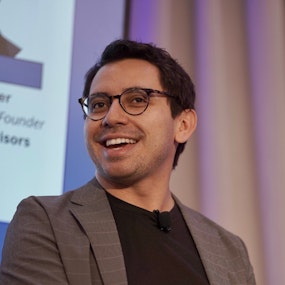
James T. Fishback
Founder and Executive Director
James T. Fishback is the founder of Incubate Debate, America’s fastest-growing high school debate league. A former national high school debate champion and volunteer debate coach, he launched Incubate in 2019 as a no-cost alternative to the ideological echo chamber that “traditional” high school debate has become, which he detailed in a widely-acclaimed essay in The Free Press. James is also the co-founder and Chief Investment Officer of Azoria Partners, a global macro investment firm. Prior to Azoria, he served as the Head of Macro at Greenlight Capital, a two-billion-dollar hedge fund led by David M. Einhorn.
New to the Podcast? Start listening to some of these episodes!
You can check out episodes by topic or season at the top and bottom of the page.



















